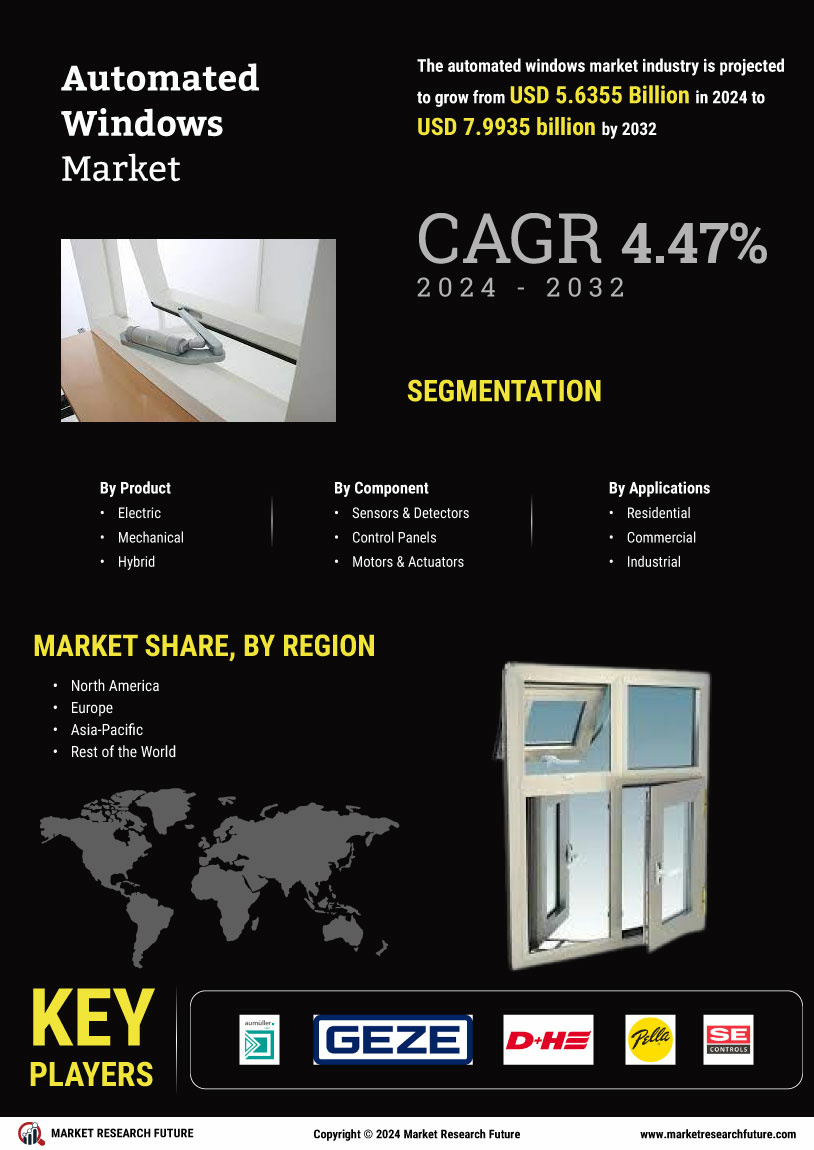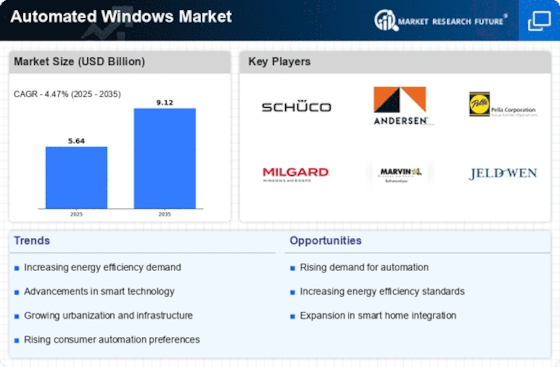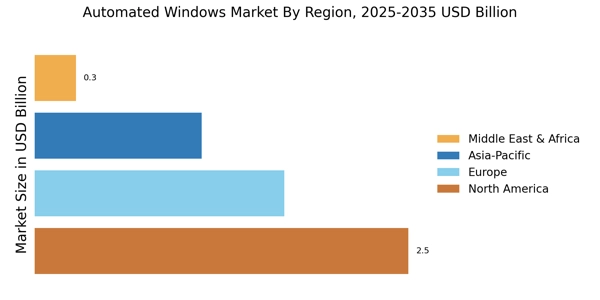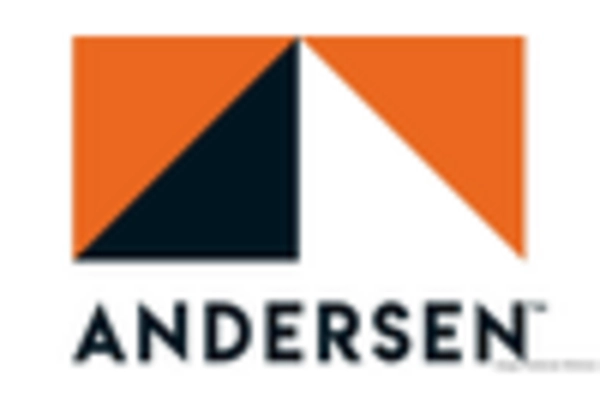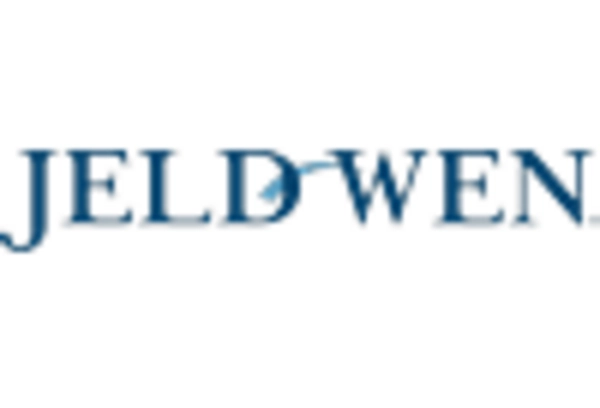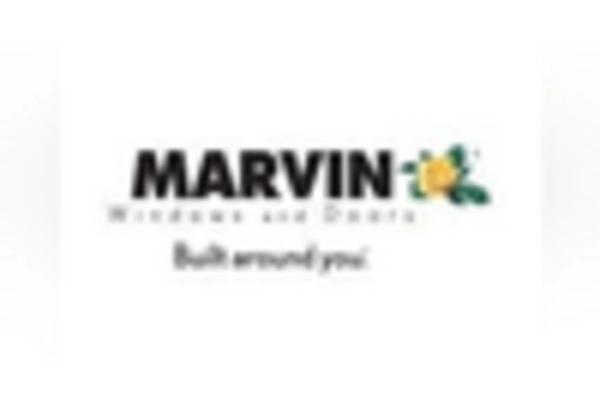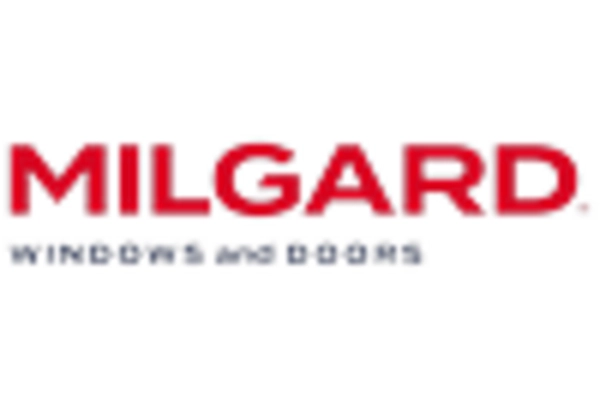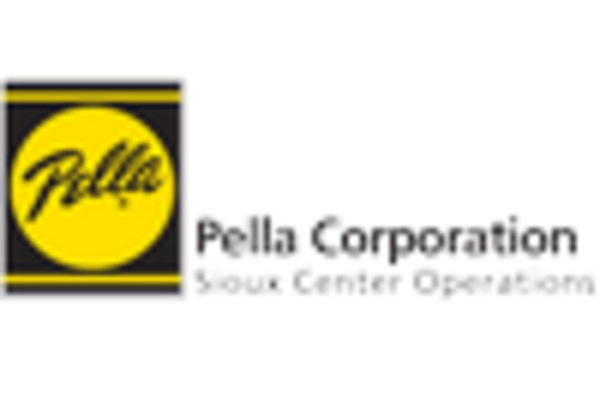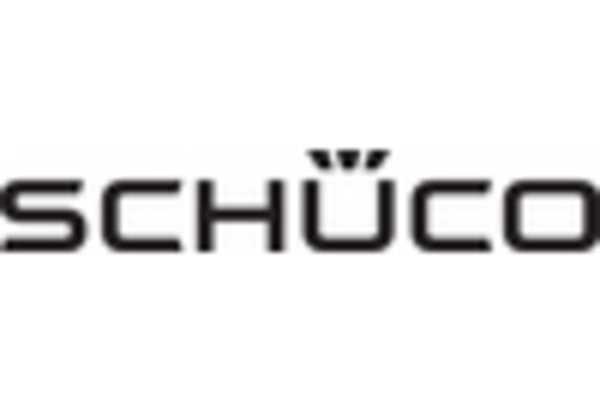Increased Focus on Aesthetics and Design
Aesthetic appeal plays a crucial role in the Automated Windows Market, as consumers increasingly prioritize design alongside functionality. Modern architectural trends favor sleek, minimalist designs that incorporate automated window solutions seamlessly. Manufacturers are responding by developing windows that not only offer automation but also enhance the overall aesthetic of buildings. This focus on design is likely to attract a broader customer base, including architects and interior designers, who are looking for innovative solutions. As a result, the Automated Windows Market is expected to see a rise in demand for customizable and visually appealing automated window options.
Technological Advancements in Automation
The Automated Windows Market is experiencing a surge in technological advancements that enhance the functionality and appeal of automated windows. Innovations such as smart sensors, IoT connectivity, and advanced control systems are becoming increasingly prevalent. These technologies allow for real-time monitoring and control of window operations, which can lead to improved energy efficiency and user convenience. According to recent data, the integration of smart technologies in window systems is projected to increase market demand by approximately 15% over the next five years. As consumers become more tech-savvy, the expectation for automated solutions in home and commercial settings rises, driving growth in the Automated Windows Market.
Growing Awareness of Health and Well-being
The growing awareness of health and well-being is influencing the Automated Windows Market significantly. Automated windows can improve indoor air quality by facilitating natural ventilation and reducing reliance on artificial heating and cooling systems. This is particularly relevant in residential and commercial spaces where occupants are increasingly concerned about the impact of indoor environments on health. Research suggests that buildings with automated ventilation systems can enhance occupant comfort and productivity. Consequently, this trend is likely to drive demand for automated window solutions that promote healthier living and working environments, thereby expanding the Automated Windows Market.
Rising Demand for Energy-Efficient Solutions
The emphasis on energy efficiency is a pivotal driver in the Automated Windows Market. With rising energy costs and growing environmental concerns, consumers and businesses are increasingly seeking solutions that reduce energy consumption. Automated windows, equipped with features such as self-tinting glass and automated opening mechanisms, can significantly lower heating and cooling costs. Market analysis indicates that energy-efficient window solutions could account for over 30% of the total window market by 2026. This trend is further supported by government incentives aimed at promoting energy-efficient building practices, thereby propelling the growth of the Automated Windows Market.
Regulatory Support for Smart Building Technologies
Regulatory frameworks are increasingly supporting the adoption of smart building technologies, which includes the Automated Windows Market. Governments are implementing policies that encourage the integration of automation in building designs, often providing financial incentives for energy-efficient upgrades. This regulatory support is expected to stimulate market growth, as builders and developers seek to comply with new standards. Furthermore, as sustainability becomes a priority in urban planning, automated windows that contribute to energy efficiency and smart building initiatives are likely to see heightened demand. This alignment with regulatory trends positions the Automated Windows Market for robust growth in the coming years.
